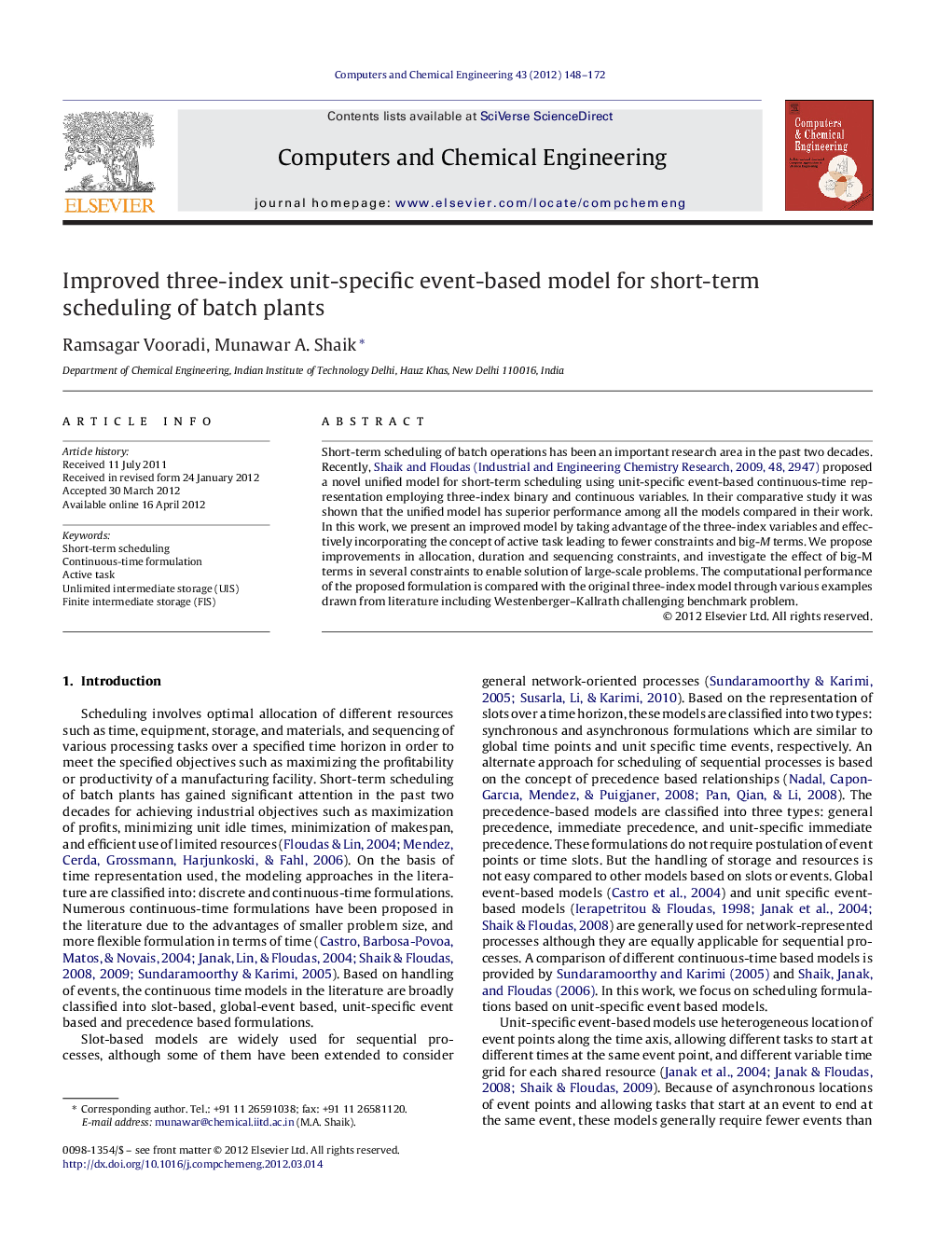| Article ID | Journal | Published Year | Pages | File Type |
|---|---|---|---|---|
| 172834 | Computers & Chemical Engineering | 2012 | 25 Pages |
Short-term scheduling of batch operations has been an important research area in the past two decades. Recently, Shaik and Floudas (Industrial and Engineering Chemistry Research, 2009, 48, 2947) proposed a novel unified model for short-term scheduling using unit-specific event-based continuous-time representation employing three-index binary and continuous variables. In their comparative study it was shown that the unified model has superior performance among all the models compared in their work. In this work, we present an improved model by taking advantage of the three-index variables and effectively incorporating the concept of active task leading to fewer constraints and big-M terms. We propose improvements in allocation, duration and sequencing constraints, and investigate the effect of big-M terms in several constraints to enable solution of large-scale problems. The computational performance of the proposed formulation is compared with the original three-index model through various examples drawn from literature including Westenberger–Kallrath challenging benchmark problem.
► We present an improved model for short-term scheduling of batch plants. ► We effectively incorporate the concept of active task leading to better model. ► We propose improvements in duration, sequencing, and storage related constraints. ► The proposed model has fewer constraints and big-M terms. ► The model is tested on many examples including Westenberger–Kallrath problem.
